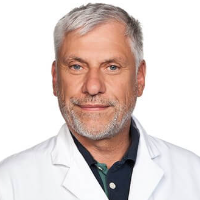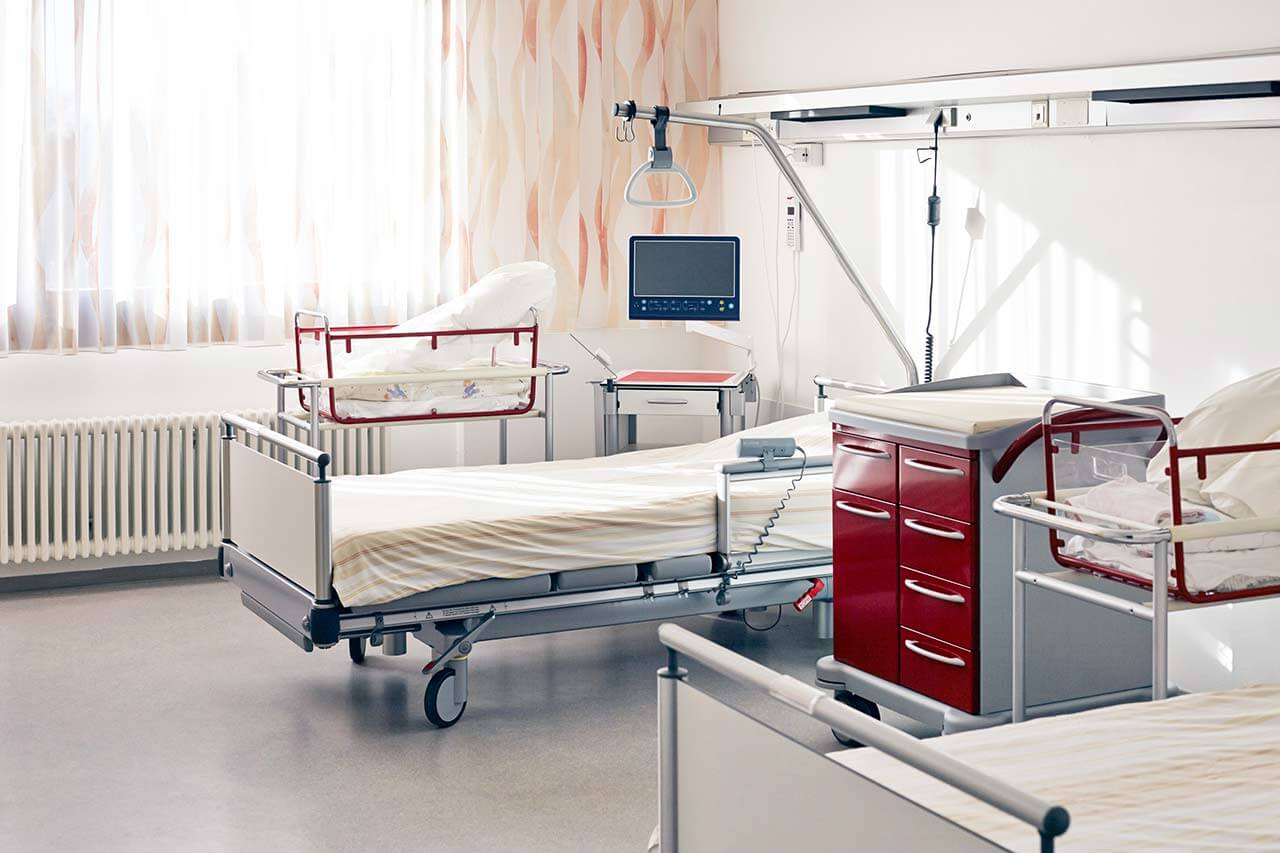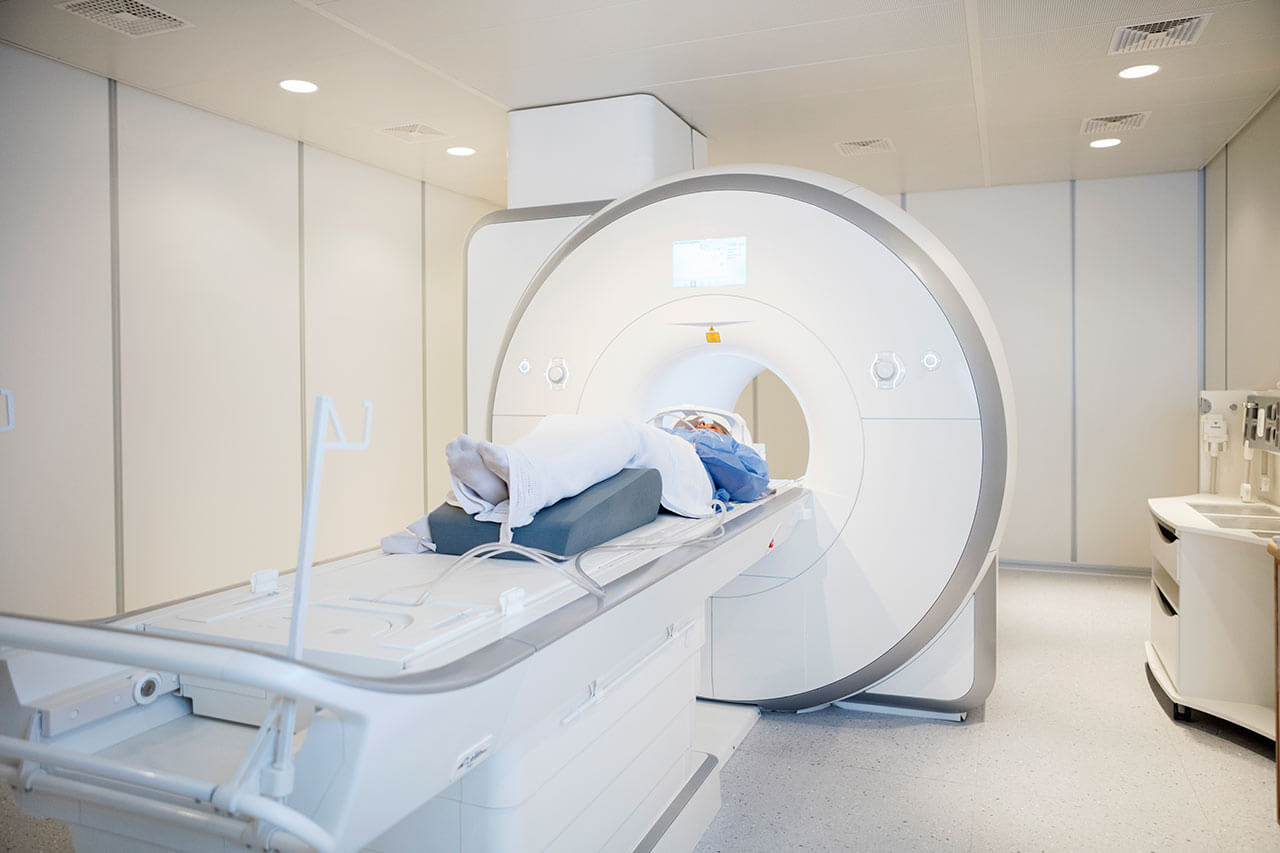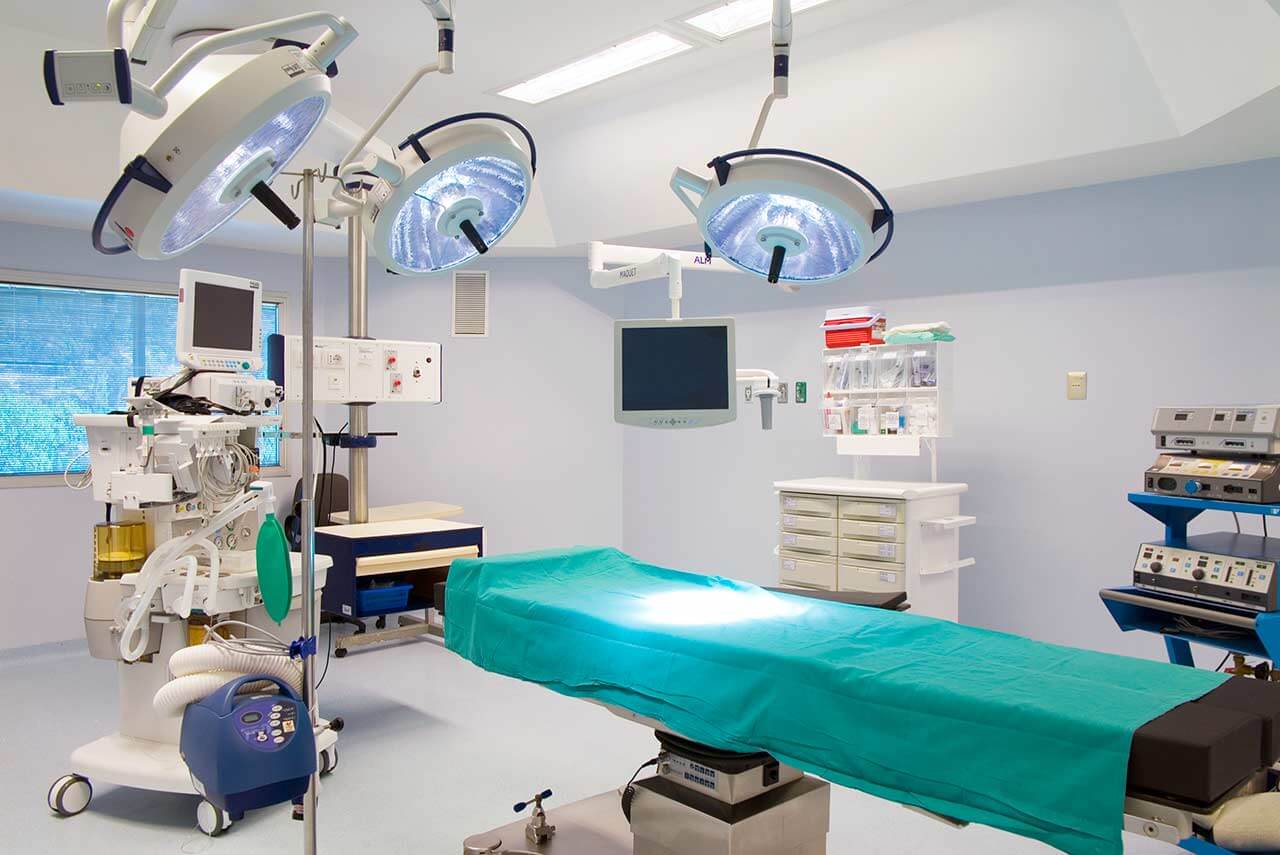
About the Department of Mammology at Hospital Cologne-Holweide
The Department of Mammology at the Hospital Cologne-Holweide provides the full range of diagnostic and therapeutic services for women and men with benign and malignant breast diseases. The department also successfully performs breast plastic surgery, including breast augmentation and reduction. Prior to such surgical procedures, patients receive detailed counseling on all issues related to the upcoming surgery. The department has comfortable diagnostic rooms equipped with state-of-the-art devices for ultrasound scans, mammography, and breast MRI. The department's doctors also specialize in performing various types of biopsies, including core needle biopsy, vacuum-assisted biopsy, and stereotactic biopsy. During the treatment of benign breast conditions, doctors often manage to solve the problem with conservative therapeutic methods. As for the treatment of breast cancer, which is one of the most common and life-threatening oncologic diseases among women worldwide, surgical resection is most often performed in combination with drug therapy and/or radiation therapy. The department's medical team makes every effort to provide each patient with individualized and effective treatment that meets their needs.
The department is headed by Prof. Dr. med. Mathias Warm, a highly qualified obstetrician and gynecologist who has impressive clinical experience. According to the Focus medical magazine, Dr. med. Mathias Warm has been repeatedly ranked among the top doctors in the area of his specialization. The professor previously headed the Breast Center at the University Hospital Cologne and also made a great contribution to the development of the Department of Mammology at the Hospital Cologne-Holweide.
Many patients seek medical help from the department every year, most of whom are diagnosed with breast cancer. More than 8 surgical interventions on the breast are performed daily in the department's operating rooms. Breast cancer is one of the most dangerous oncologic diseases and the most common type of cancer among women, often affecting young women of childbearing age. This is due to the lack of symptoms in the early stages of cancer development, as a result of which the diagnosis is already made at the 3-4 stage, when the malignant cells have spread beyond the breast.
When a woman with suspected breast cancer is admitted to the department, the doctor carries out a clinical examination and palpation, studies the patient's medical history, etc. Following that, instrumental diagnostic tests are performed, including 3D and 4D sonography and digital mammography. In some cases, the department's specialists may also use magnetic resonance imaging. Should the diagnostic results cause concern to the breast specialist, the next step will be a biopsy. The procedure involves obtaining a sample of breast tissue for detailed analysis in a laboratory. In cases of suspected breast cancer, biopsy results play a crucial role in making an accurate diagnosis. The department performs several types of biopsy, such as core needle biopsy, vacuum-assisted biopsy, and stereotactic biopsy.
A treatment regimen for breast cancer is developed during interdisciplinary tumor boards with the participation of breast specialists, gynecologists, surgeons, oncologists, radiation therapists, and other specialists. The task of the department's doctors is to provide the most effective and sparing treatment possible. As a rule, surgery is the first-line treatment. In advanced cancer stages, a patient may be indicated for breast removal surgery (mastectomy). In such cases, women often fall into despair, especially if a mastectomy is required for a young woman. The department, however, is a progressive medical facility that offers the services of highly qualified plastic surgeons. The specialists successfully perform plastic breast reconstruction after extensive resections using silicone implants, expanders, and autologous adipose tissue.
Surgery is mostly complemented with conservative therapies such as chemotherapy, radiation therapy, hormone therapy, targeted therapy, immunotherapy, etc. The dosage, duration, and intensity of the course of conservative treatment depend on the patient's clinical data, her age, general health condition, the outcomes of previous surgical resection, and other factors.
Young women with breast cancer who are planning to become pregnant in the future are interested in preserving their fertility after chemotherapy or radiation therapy because these methods may irreversibly impact reproductive health. The department has introduced a special FertiPROTEKT program, within which the patient can receive comprehensive advice on the possibilities for planning motherhood in the future.
In the postoperative period, the department's doctors provide comprehensive care and rehabilitation, including individual and group therapeutic exercises, physiotherapeutic procedures, and neurotherapy. All these measures aim to improve the patient's health and achieve maximum recovery after the treatment is completed. Therapeutic exercises and physiotherapy help in the prevention of thrombosis and edema, normalize shoulder mobility, and promote overall healing. Neurotherapy can eliminate a number of undesirable post-surgery consequences, including impaired wound healing, painful scars, pain after surgery and irradiation, as well as neuropathic pain.
The department's range of diagnostic and therapeutic options includes:
- Diagnostics
- Examination and palpation for the initial assessment of the breast condition
- 3D and 4D breast sonography and assessment of lymphatic drainage on both sides
- Digital mammography
- Magnetic resonance imaging
- Lymph node and bone scintigraphy
- Positron emission tomography
- Biopsy
- Core needle biopsy
- Vacuum-assisted biopsy
- Stereotactic biopsy
- Treatment
- Surgical treatment
- Breast surgery to remove benign and malignant tumors of varying complexity
- Reconstructive breast surgery after mastectomy
- Conservative treatment
- Chemotherapy
- Radiation therapy
- Hormone therapy
- Targeted therapy
- Antibody therapy
- Immunotherapy
- Postoperative rehabilitation: therapeutic exercises, physiotherapy, and neurotherapy
- Surgical treatment
- Other medical services
Curriculum vitae
Higher Education and Professional Career
- 1986 - 1992 Medical studies, Ernst Moritz Arndt University of Greifswald.
- 1992 - 1994 Internship, Department of Gynecology, Hospital Stralsund (Academic Hospital at Ernst Moritz Arndt University of Greifswald).
- 1994 - 1997 Assistant Physician, Department of Gynecology, Hospital Stralsund (Academic Hospital at Ernst Moritz Arndt University of Greifswald).
- 1996 Thesis defense, Department of Gynecology, Hospital Stralsund (Academic Hospital at Ernst Moritz Arndt University of Greifswald).
- 1998 Board certification in Gynecology and Obstetrics.
- 1997 - 2000 Senior Physician, Department of Gynecology, City Hospital Wolfsburg.
- 2002 Optional advanced training in Special Operative Gynecology.
- 2003 Qualified Instructor for Breast Ultrasound.
- 2003 Certificate from the German Society of Ultrasound in Medicine (DEGUM II) for Breast Sonography.
- 2003 Head of the Breast Center at the University Hospital Cologne.
- 2004 Deputy Head of the Department of Gynecology and Obstetrics at the University Hospital Cologne.
- 2005 An authorized person for conducting advanced training/retraining within the optional advanced training program in Special Operative Gynecology.
- 2006 Seminar Leader at the German Society of Ultrasound in Medicine (DEGUM); additional qualification in Tumor Drug Therapy.
- 2009 Professional Auditor of the Breast Centers in North Rhine-Westphalia.
- 2009 Habilitation, Faculty of Medicine, University of Cologne. Subject: "Individualized clinical approaches to the treatment of women with breast cancer based on the prediction of response to neoadjuvant chemotherapy".
- Since 2010 Head Physician of the Department of Mammology at the Hospital Cologne-Holweide.
- 2011 Certificate from the German Society of Ultrasound in Medicine (DEGUM III) for Breast Sonography.
- Since 2016 Extraordinary Professorship at the University of Cologne.
Memberships in Professional Societies
- German Society of Gynecology and Obstetrics (DGGG).
- Society for Reconstructive Surgery in Gynecology (AWO-Gyn).
- Working Group on Breast Sonography of the German Society of Ultrasound in Medicine (DEGUM).
- Professional Association of Gynecologists.
- Lower Rhine-Westphalian Society for Gynecology and Obstetrics.
- Quality Life House (Haus Lebenswert e.V).
- North Eastern German Society of Gynecological Oncology (NOGGO), Board Member.
- German Society for Senology (DGS).
- German Cancer Society (DKG).
- Working Group on Gynecological Oncology (AGO).
- German Society of Plastic, Reconstructive and Aesthetic Surgeons.
- German Society for Osteooncology (DOG).
- Rhineland Society of Gynecologists (GenoGyn).
- Women After Cancer (FRANKA e.V.).
- Breast Cancer Society (Brustkrebs Deutschland e.V.).
- Scientific Advisory Board Member of the Governing Board "Estimation of mortality within the German Mammography Screening Program" at the Federal Office for Radiation Protection.
Photo of the doctor: (c) Krankenhaus Köln-Holweide





